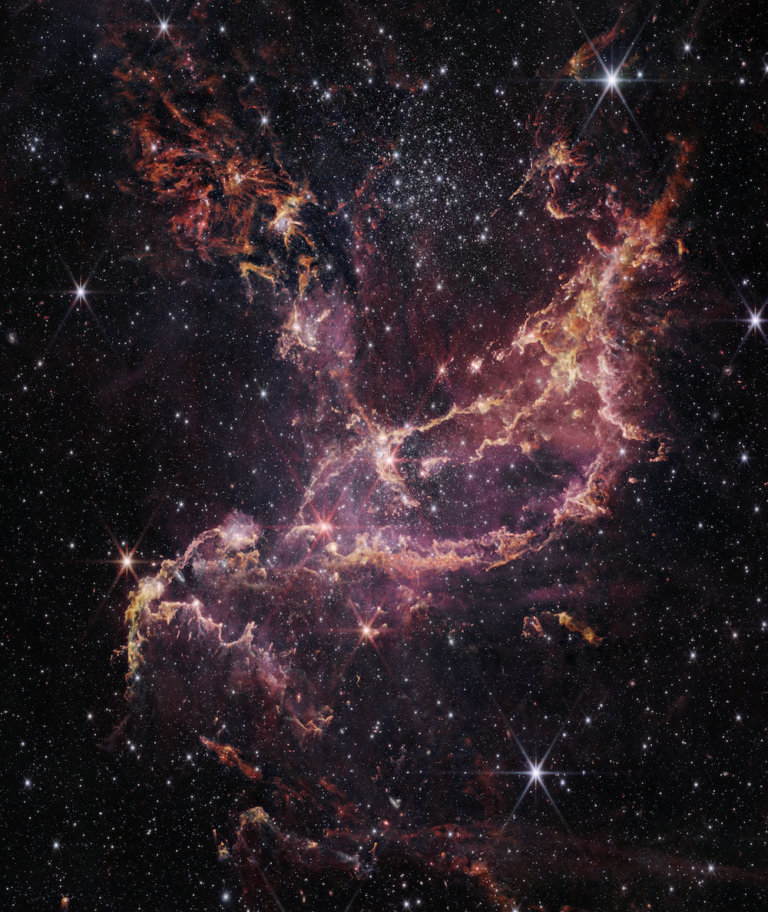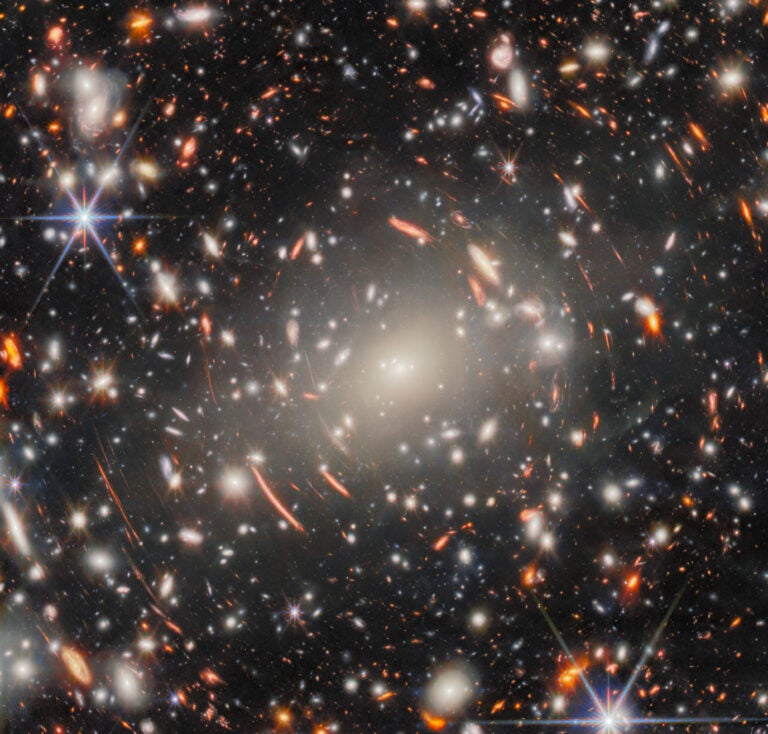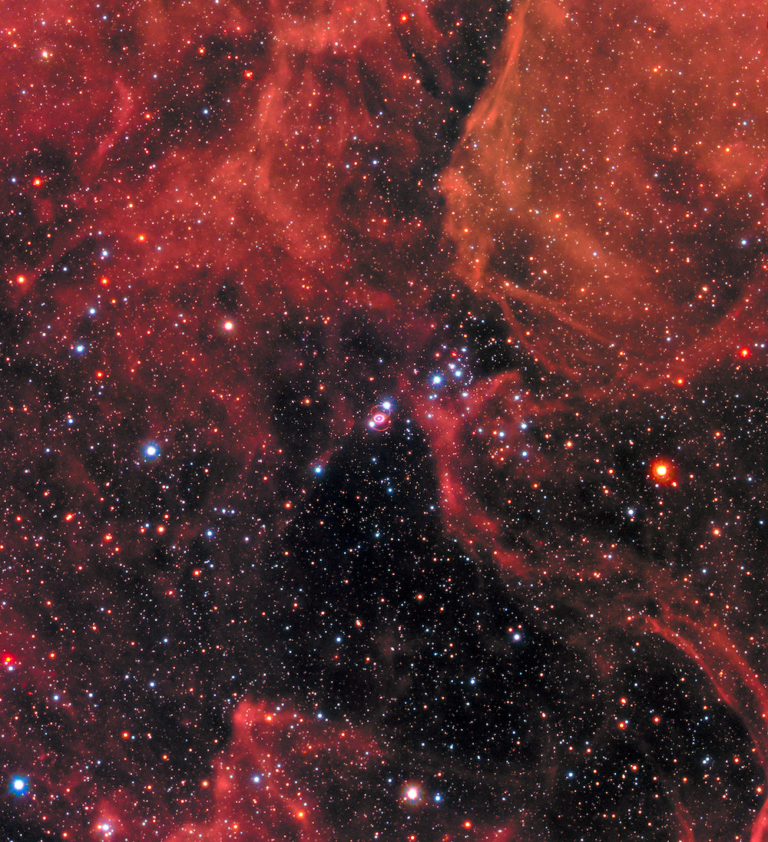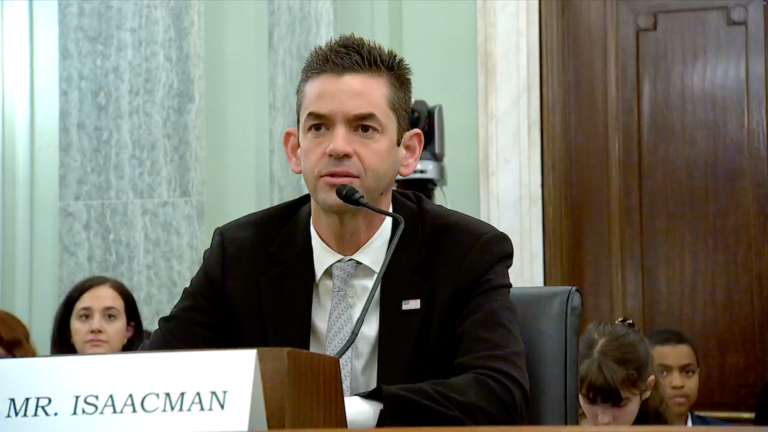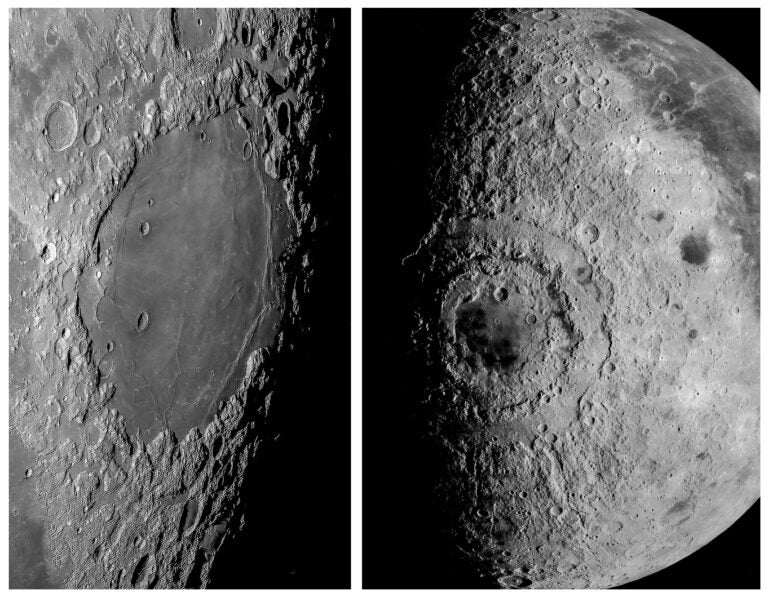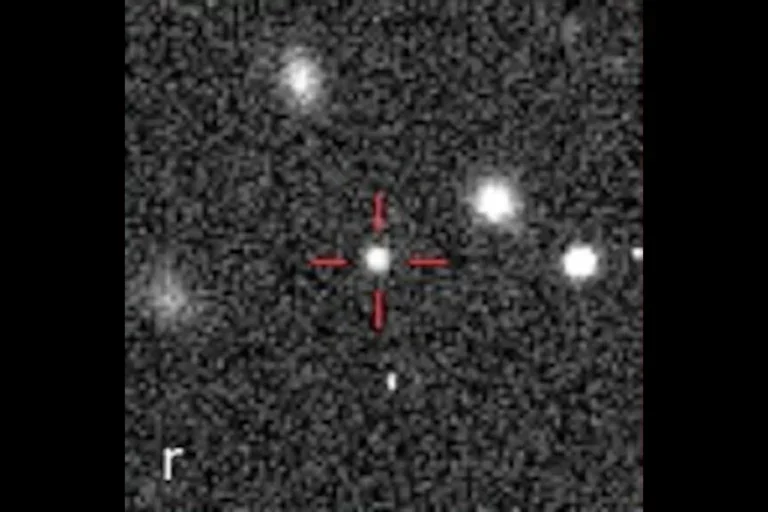This is no small piece of news. The implications are enormous.
First, though, how do we know? How could we know? It actually has been creeping up on us since the 1990s. Many separate areas of investigation — like baryon acoustic oscillations (sound waves propagating through the denser early universe), the way type Ia supernovae compare with redshift, the Hubble constant, and the flat topology of space — all point the same way.
I spoke with Shirley Ho earlier this year. She’s part of the Lawrence Berkeley National Laboratory team that just studied 900,000 galaxies to give us the best-ever view of cosmic large-scale structure.
“Our results support an infinite universe,” she says.
It’s a huge change from the prevailing model of a finite but unbounded cosmos, with a specific quantity of matter and energy but no walls. In the old model, curved space would let a seemingly straight-traveling astronaut zoom past a galaxy a second time, maybe 200 billion years later. But infinity changes things. It means space never ends. It’s a matrix of limitless galaxies, stars, planets, and energy.
California Institute of Technology theoretical physicist Sean Carroll cautiously noted last spring that while a finite universe would be provable, scientists can never prove infinity. Nonetheless, given the current data, he feels the universe “probably is infinite.”
If so, he adds, “then either an infinite number of different things happen or a finite number of things happen an infinite number of times. Either possibility is pretty mind-boggling.”
It means the Big Bang was probably just a local event, a big to-do in the ’hood, confined to only the observable universe. As for the larger universe beyond, if there were a birth, says University of Chicago cosmologist Rocky Kolb, it would have “started out everywhere at once, as infinite from the beginning.”
This doesn’t bother everyone. Last April, Debra Elmegreen, then president of the American Astronomical Society, shrugged it off: “Even if we can only observe a very small fraction of the universe, that’s plenty to keep us busy.”
But she slightly misspoke. It’s not a very small percentage that’s observable. You see, any fraction of infinity is essentially zero. It means we cannot see even a few paintbrush strokes of the celestial masterwork. All we can ever hope to study is 0 percent.
things. It means
space never ends.
Says State University of New York physics professor Tarun Biswas, “All scientific theories are models of nature based on observation. The problem with cosmology is that its current model is based on almost negligible observational data. It would still not be a problem if people did not take it so seriously.”
Take the idea that everything started from nothingness — that the positive attractive force of all mass and gravity is balanced by the negative repulsiveness of dark energy. The plus and minus cancel out. This universe is zilch.
Is this valid reasoning or technobabble? In my opinion, you can’t get something from true nothingness. Moreover, calling things positive and negative and then saying they cancel into blankness doesn’t mean they are actually positive or negative except as mental classifications.
You want the truth? No one knows how the universe materialized or if it even had a birth. The Big Bang’s zero moment remains an utter enigma. Indeed, many such speculations produce eye rolls from physicists like Biswas who believe some shred of observational evidence still has a place in science.
In any case, current ideas about the Big Bang don’t carry us beyond square one because no one knows anything about the infinite universe from which it arose. We can only guess about the larger cosmos. Will its assumed homogeneity someday be replaced by vast neighborhoods ruled by separate physical laws? It’s far too soon to say. But it’s not too soon to start telling kids that the galaxies and stars probably go on and on without end. And, yes, no one can picture this.
Astronomy has become a dichotomy. On the one hand, we have facts like the martian rotation period of 24h, 37m, 23s that are rock solid. We know how the stars shine. It’s an exciting time. But bedrock cosmology issues — Was the universe born? What’s its size? What’s it really made of? — remain enigmas. Worse, an infinite universe means that these basics may be unknowable.
Elmegreen might be content with her 200 billion galaxies. And sure, this playground is vast. It’ll definitely keep us busy. But, face it, our intellects hate blank spaces, especially when they’re enormous. An unknown infinite cosmos isn’t a comfortable development.
The good news? You won’t be reminded about it. Most astronomers will ignore infinity. They’ll focus on the observable portion, the 0 percent that is ours to explore. What else can they do?
So I’ll calm down. I won’t keep bringing this up. I’m just going through some sort of celestial Kübler-Ross grief stage, and hopefully I’m on my way to acceptance.
Contact me about my strange universe by visiting http://skymanbob.com.


